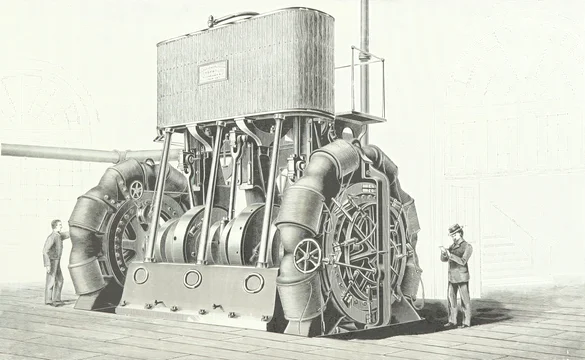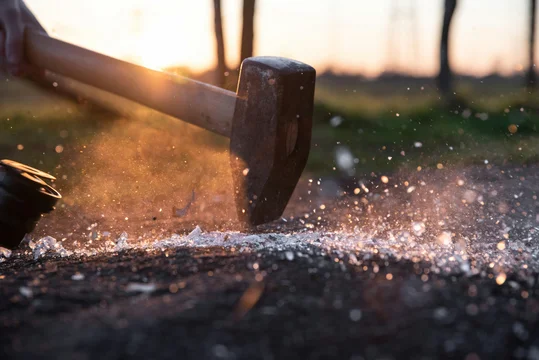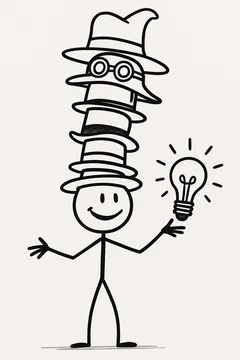
As we laid out in Friday's post, there was a hearing today in Rein Tech, Inc. v. Mueller Systems, LLC, C.A. No. 18-1683-MN (D. Del.) regarding another potential protective order violation. The defendant in Rein alleged that the inventor (who has seen AEO information) has continued to prosecute another patent application in the same field, despite the prosecution bar in the Court's protective order.
Update on Today's Hearing
The Court opened the hearing today by announcing that it intended to grant the defendant's SJ motion of non-infringement. Shortly thereafter, counsel for the patentee informed the Court that the patentee is now willing to stipulate to dismissal with prejudice, but that the defendant has refused to permit him to do so.
Counsel for the defendant pointed out that the defendant also had counterclaims, and suggested the possibility of other suits (perhaps on other patents) following a dismissal. The Court asked whether the defendant would prefer that the Court granted SJ or dismissed the case immediately. After conferring, counsel said they would prefer SJ.
The Court briefly questioned counsel for the patentee about the pending motions for attorneys' fees and sanctions for the most recent alleged protective order violation. On fees, the primary concerns were timing and a few individual fee entries; otherwise, the patentee did not oppose grant of the fee motion.
On the sanctions motion, counsel for the patentee said that the inventor did not file the prosecution document he signed, but seemed uncertain as to who had actually filed it. The Court said it needed everyone involved in the room to make credibility determinations about the sanctions issue. Shortly after the hearing, it issued an order specifically barring prosecution of any related patents, and asking for the availability of everyone involved in prosecution of the new patent application:
ORAL ORDER - As discussed in today's hearing, IT IS HEREBY ORDERED that Plaintiff shall provide this Court with dates when [the inventor] and any others involved in prosecution of U.S. Patent Appl. No. 17/981,454 are available for an in-person hearing. Prior to this hearing, [the inventor] may not participate directly or indirectly in . . . the preparation or prosecution of any patent application pertaining to the Field of Invention of the Patents-in-Suit, as is proscribed by this Court's Protective Order.
Rein Tech, Inc. v. Mueller Systems, LLC, C.A. No. 18-1683-MN, D.I. 222 (D. Del. Nov. 5, 2025).
With No Expert, Court Issues SJ of No Infringement
Shortly after the hearing, the Court issued a summary judgment opinion finding no infringement.
As we've discussed previously, the Court already found multiple protective order violations and, as a result, barred the inventor from testifying as an expert. Since then, apparently, the plaintiff has not sought leave to offer a new expert:
After the Court’s disqualification of [the inventor] as an expert, Plaintiff did not seek leave for any other individual to testify as an expert in this case. Nevertheless, during a teleconference on October 8, 2025, 7 Plaintiff’s counsel informed the Court, for the first time, that he planned to introduce two new experts at trial. . . . Plaintiff’s counsel had waited until October 7 – more than two months after the Sanctions Hearing, and just over a month before trial was set to begin – to inform Defendant’s counsel that he planned to include these experts. . . . Moreover, during the teleconference, Plaintiff’s counsel admitted that he had not yet met these experts, had not begun the process of drafting expert reports, and had little idea about what these experts would testify. . . . Even now, about a week before the November 12, 2025 trial date, Plaintiff has still not sought leave for these new experts to testify. Plaintiff thus lacks any expert who is eligible to testify at trial.
Rein Tech, Inc. v. Mueller Systems, LLC, C.A. No. 18-1683-MN, D.I. 223 at 6 (D. Del. Nov. 5, 2025).
Now, lacking an expert (and with conclusory infringement contentions), the patentee cannot prove that the accused product meets the elements of the claims, including one specific element:
Plaintiff’s conclusory infringement arguments are particularly problematic in that Plaintiff has no supporting expert opinion explaining how the Setting Limitation is met by the Accused Products. There is no dispute that this case involves complex technology.[] Nor is there a dispute that expert evidence is generally necessary in cases that involve “complex technology.” . . .
Here, however, we have no expert testimony to explain infringement to the jury. Plaintiff made the strategic decision to designate just one expert, [the inventor himself], who has now been excluded from testifying as an expert at trial for repeated violations of the Protective Order. (D.I. 196 at 46:1-25). [The inventor]’s opinions thus cannot be considered at this stage. . . . In the absence of a clear infringement argument and critical expert testimony, Plaintiff cannot meet its burden to establish infringement at trial, and summary judgment is appropriate.
Id. at 10-11. Obviously, that doesn't mean you necessarily have to have an expert in every patent case. But when was the last time you saw a patent case that indisputably did not involve "complex technology"?
If you enjoyed this post, consider subscribing to receive free e-mail updates about new posts.


